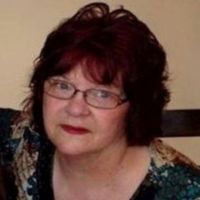Compassion Midwest Style: featuring Appleton Wisconsin
What do Indians, Midwesterners, Buddhists, scientists, activists, citizens, foxes, and the Dalai Lama have in common? Appleton, Wisconsin. The number six Compassionate City to sign on to the Charter for Compassion, Appleton—in the Fox Valley—is tucked into what was once a broad river valley bordered by the Niagara Escarpment on its north and the Driftless Area south and west. Missed by the glaciers and the ice age that once covered the state, the Driftless Area and its Karst topography involves steep hills, forested ridges, deeply carved river valleys, cliffs, spring-fed waterfalls, cold water trout streams in a land originally inhabited by American Indians’ Iroquois Nations.
Compassion became a Theme in Appleton when Tenzin Gyatso, His Holiness the Dalai Lama, became an honorary Appletonian and Wisconsinite. Uniquely graced by His presence and blessings, Wisconsin is home to a Buddhist Dharma Center near the capital city Madison, where Tibetan Monks live and work. Madison is also home to Wisconsin’s own Dr. Richard Davidson of the University of Wisconsin who was studying the science of meditation when he met the Dalai Lama in 2007, during a visit to the Himalayas.
Dr. Davidson, Professor of Psychology and Psychiatry at the University of Wisconsin, was discussing his research using the tools of modern neuroscience in the study of anxiety, fear and depression when His Holiness asked him: “why couldn’t you use those same tools to study kindness and compassion and the positive qualities of life?” The Dalai Lama’s suggestion was so compelling that Davidson vowed to His Holiness that he would do everything in his power to put compassion on the scientific map. And he has.
Founder of the Center for Healthy Minds, Davidson has initiated longitudinal studies in kindness and compassion with schoolchildren and the effects of compassionate meditation on the brain. His TED talks outline the research methodology and his center has initiated some interesting studies in the human brain/mind response to compassion. It is emerging from scientific studies that we are actually hard-wired for compassion. (University of Wisconsin, 2009) (Johnson, 2010)
Providence would move Tim Riley, Director of the Trout Museum in Appleton when he saw Dr. Davidson’s “Brain to Five” series on the science of compassion and how contemplation of compassion increases neuroplasticity. It triggered a spontaneous and intuitive idea: “what if school children were presented with a question: ‘What does compassion mean to you?’ and they were given art tiles on which to draw their illustrations of compassion? And what if they were asked to write an accompanying paragraph on what compassion means to them?” Would that be a viable path to ensure compassion and kindness would become a part of their vocabulary and behavior?
In the Fall of 2010, Riley and Jim Heiks, the school district’s visual arts coordinator, handed out 10,436 6”X 6”tiles to all the students in the district and asked them to illustrate their idea of compassion and to write a statement about the inspiration for their work. The Trout Museum displayed the tiles with some now permanently installed in local spaces including Universities and the areas’ airports. (Smith, 2011)
Lawrence University, inspired by what the children had done joined the Compassion Project in 2011 when Rob Neilson, the Frederick R. Layton Professor of Art at Lawrence University, challenged his sculpture class students to come up with their own personal definition of compassion. His students crafted molds of manhole covers and teamed up with nearby Neenah Foundry to pour the covers and create sidewalk art now installed in city sidewalks in Appleton. Neilson’s manhole titled “Mandela Mandala” features eight images of Nelson Mandela arranged into an abstract design. Another manhole depicts a thumbprint symbolizing the individual responsibility to show compassion and yet another with a series of intersecting ripples of water to illustrate the far-reaching effects of one person’s actions; there are 12 such sculptures that grace Appleton’s sidewalks. (Rick Peterson, 2011)
Jeanine Knapp, responsible for promoting Compassionate Appleton, was the sustainability leader at her workplace when she had an idea to organize around the Compassion Project to promote kindness, goodwill and compassion with compassion initiatives. She attended meetings for the community collaborative, “Compassionate Appleton Live!”—a concert planned for Appleton’s Performing Arts Center, and came away inspired and determined not to let compassion engagement end there—for the community and beyond.
She would go on to recruit 5 community leaders who would collaboratively implement further engagement to include: screenings of “The Happy Movie” at libraries, schools, universities and the Wisconsin Psychological Association Annual Convention; celebration of the International Day of Happiness with Appleton’s Sister City artists from Kurgan, Russia; a public symposium featuring Pardeep Kaleka whose father was killed in the Sikh temple shooting in Wisconsin along with Arno Michaelis, former White supremacist, who told the story of their teaming up to reach children and teach them about other faiths, racism, bullying and dignity in their program Serve to Unite. (Story at the Charter for Compassion "A Radical Compassion: How the Sikh Temple massacre ignited a prayer, an unholy alliance and an extraordinary mission" B. Kaufmann, 2013)
Partnering with arts committees, more events were planned: compassion themed sidewalk poetry workshops and contests for the permanent installation of poems on Appleton’s sidewalks; Compassionate City’s Peace Camp; Compassion Café conversations; a voice in Appleton’s Mile of Music celebration; and Compassion Café Conversations for the Earth. The City of Neenah bordering Appleton also became a Compassionate City that initiated “Compassionate Business Awards” for businesses and their internal engagement with a Dream Coach.
Jeanine’s work unearthed a profound conclusion: “I recognized that all of my priorities, including environmental ones, are only achievable through compassion. The climate action that is needed to ultimately protect all human health is difficult because it’s not well understood. What’s needed is the widest reach of compassion humans have ever attempted, and to extend it to all creatures and beings.” (Knapp Interview, 2019)
The Charter for Compassion teaches “Think Globally Act Locally” because compassion isn’t just a squishy, warm feeling but an “urgent global imperative” according to religious scholar and founder Karen Armstrong who recruited thought leaders in Christianity, Judaism, Islam, Buddhism, Hinduism with signatories like Pope Benedict XVI, the Dalai Lama, Desmond Tutu, Deepak Chopra, Muhammad Ali, mayors, political leaders and social scientists worldwide.
In that same Local-Global Spirit, two of Appleton’s activists are now staff members with the international Charter working regularly with a global team. Barbara Kaufmann met the Dala Lama when she was asked to transport the Monks from the Dharma Center at Global View to an audience in Madison, Wisconsin with His Holiness. She tells an amusing story of monks in saffron robes trying to disembark with dignity from her little sports car for the audience with His Holiness with her as their escort. Writer and storyteller and the Charter’s Senior Writer and Arts Director, former officer with Sister Cities and grant writer for funding for an international project decommissioning weapons of mass destruction in Russia, Barbara began working with Marilyn Turkovich, the Charter’s Executive Director in 2009 when she was the Program Director for Voices Education Project. Barbara suggested to Voices, an education network dedicated to proving that violence is not intractable, that a reference resource on bullying was needed. Marilyn invited her to submit the project and Barbara went to work on Words and Violence that features more than 600 resources on bullying in all its incarnations. When Marilyn was asked to co-manage the Charter for Compassion, she invited Barbara to join her. That was in 2009 and Barbara has been with the Charter ever since. Her work with the Charter found her writing brochures and feature stories, interviewing Charter Partners and producing podcasts and documentary films with colleagues in her international studio.
Appleton native Kate Trnka planned a road trip from Appleton to the American Northwest in the summer of 2017 to meet her mentor in pursuit of her Ph.D. in Eco-psychology and to visit 2 authors whose books she had used with her public school students. Barbara told Kate that she was in the neighborhood of Marilyn Turkovich, Charter Executive Director, and that Kate just had to meet Marilyn! During her time visiting Marilyn, Kate spoke of meeting authors she admired and her love for trees and nature, and Marilyn immediately recruited her to lead the Global Read Program that features interviews with authors about their books, and to lead the Environment Sector where Kate has initiated the sector’s Compassion Tree Project—a project advocating and planting native trees. Kate is also teaching environmental studies at the Charter’s Educational Institute.
What do Indians, Midwesterners, Buddhists, scientists, activists, citizens, foxes, and the Dalai Lama have in common? Curiosity and a passion for compassion.

© 2022 Barbara Kaufmann
Artist, activist and author, Barbara Kaufmann, One Wordsmith, writes “to simply change the world.” Staff, writer and Sector Lead for the international Charter for Compassion, for 10+ years she has committed to making the world a compassionate home for all beings. Her concern about the threat of nuclear and chemical weapons led her to duty as a Sister Cities’ Officer in one of the world’s first partnerships between the U.S. and Soviet Union where her city collaborated with governments, the U.N., military and other entities to decommission weapons of mass destruction while making friends with former enemies. An award-winning freelancer, she’s written for the Huffington Post; Voices Education Project, the Charter for Compassion, Medium and other publications. She initiated a curriculum on bullying in all its incarnations dedicated to Lady Diana and Michael Jackson. A founding case author for George Washington University School of Business, she’s authored essays, magazine articles and provocative and performance poetry. Trained artist, journalist and photographer, she founded Walking Moon studios along with Jo Vander Grift and has written scripts and directed promo films and documentaries. After seminary, ordination, and training in Spiritual Emergency, she became “Reverend B.” whose calling was globally ministering to grief, especially to the loss of masters and icons.


